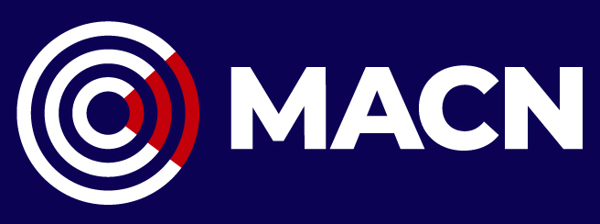Corruption increases the costs of a transaction and can lead to severe consequences for failing to meet anti-bribery compliance standards. From an ethical perspective, bribery and corruption erode the rule of law and harm companies striving to uphold high standards, diverting resources from ethical businesses and governments to corrupt officials and business owners.
In the maritime transport chain, corruption can delay shipments, distort competition, and increase operational costs, ultimately affecting the efficiency and safety of global trade. Bribery and corruption can take various forms and may be challenging to detect. However, companies can take proactive steps to mitigate these risks.
Discounts
A 10% group discount is available for registering three or more participants from the same company.
What will you learn?
Day 1: Understanding Anti-Corruption and Its Implications (90 minutes)
Introduction: The first day of the seminar will focus on the fundamental aspects of anti-corruption and its relevance to the shipping industry. Participants will gain insights into relevant legislation and trades, the various types of corruption that may affect their operations, as well as the importance of due diligence in their operations.
Content Overview:
- Why is compliance important, and what are the potential implications for your business and employees?: Financial, legal, insurance and operational impact, criminal liability, reputational and wider CSR impact on your business, impact on seafarers and their well-being.
- Insights into relevant legislation and trades: OECD 1997 Convention on Combating Bribery of Foreign Public Officials in International Business Transactions, 2003 United Nations Convention against Corruption, UK Bribery Act, US Foreign Corrupt Practices Act, other domestic legislation.
- Where corruption typically happens: Shipping operations and trades (customs clearance, PSC, etc.), countries/regions to be particularly mindful of. How to identify and evaluate corruption-related risks that could compromise the integrity of operations and transactions.
- Types of corruption that may affect operations: Demands for bribes and facilitation payments and the importance of refusing payments despite potential intimidation and delays.
- Q&A: Questions from participants and practical examples from the speakers.
Day 2: How to promote a compliance culture and avoid anti-corrupt behaviour (90 minutes)
Introduction: The second day will focus on what companies need to do to avoid corruption and how to respond in case a corrupt demand is made. Participants will be introduced to available resources, contractual provisions and how to implement effective compliance programmes and manage anti-corruption risks effectively.
Content Overview:
- How to respond to corrupt practices: What to do – at management and operational level – to counter anti-corrupt behaviour. How can the importance of compliance be balanced with the risk of delays to the vessel? A practical guide based on a typical demand for facilitation payments.
- The contractual perspective: Focus on the BIMCO Anti Corruption Clause 2015, including the ability to terminate contracts in the context of corrupt activities.
- Ensuring a compliance culture: Implementing a compliance programme and ensuring compliance with the programme. The importance of due diligence and identifying and evaluating corruption-related risks.
- Resources available to companies and seafarers: MACN, P&I Clubs, BIMCO, others. Collaboration with local organisations and stakeholders to support anti-corruption efforts.
- Q&A: Questions from participants and practical examples from the speakers.
Starting time (for both sessions 1 and 2)
08:00 UTC
10:00 CEST
See the time in your local time zone.
Why choose to participate?
Participating in the Anti-Corruption in Shipping 180 Seminar offers a unique opportunity to develop the skills necessary to navigate the complexities of corruption in the maritime industry. As global trade becomes more interconnected, the potential risks associated with corruption continue to grow. By taking part in this course, you will gain a comprehensive understanding of the impact corruption can have on shipping operations, from delayed shipments to increased operational costs and legal ramifications.
This course is designed to enhance your understanding of anti-corruption legislation and compliance standards and provide practical strategies for mitigating risks in your day-to-day operations. You will explore real-world case studies and scenarios, enabling you to identify corruption risks before they compromise the integrity of your business.
The programme also offers invaluable insights into how to foster a culture of compliance within your organisation, ensuring that you can effectively implement anti-corruption measures across all levels of operation. Whether in management or operations, you will walk away with actionable knowledge on protecting your company from the damaging effects of corruption.
How will this course help your professional development?
The Anti-Corruption in Shipping 180 Seminar is designed to provide professionals with critical tools and knowledge to navigate the maritime industry's complex landscape of corruption risks. By participating in this course, you will gain a deep understanding of anti-corruption practices, the implications of bribery and corruption, and how these practices can undermine the integrity of the shipping industry.
Additionally, the course will enhance your ability to develop and implement anti-corruption compliance programmes within your organisation. You will learn to respond effectively to corrupt demands, safeguard contracts using provisions such as the BIMCO Anti Corruption Clause 2015, and leverage industry resources like MACN and P&I Clubs to promote a culture of compliance.
By attending this seminar, you will be better prepared to manage corruption-related risks, improve your decision-making processes, and contribute to the integrity of your company and the broader maritime transport chain. This training will significantly enhance your professional profile and provide the tools to foster ethical practices in your organisation, ultimately leading to more secure, efficient, and compliant maritime operations.
Course materials
BIMCO issues electronic course files as an Adobe PDF file enabling you to make personal notes. All documentation and presentations will be in English. Course access details will be provided a week before the course start date if the registration is completed.
Organised in cooperation with MACN.






